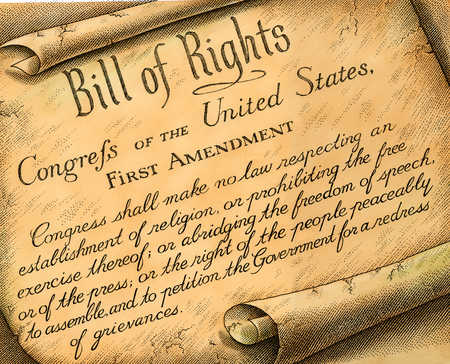- Free Consultation: (631) 352-0050 Tap Here to Call Us
First Amendment School Case Decided

The First Amendment protects many important rights, including the right of assembly. Like other First Amendment rights, however, this right is not absolute. On June 8, 2017, the Second Circuit Court of Appeals decided a case about how far a public school can go in limiting one’s right of assembly.
JD WAS BULLIED IN SCHOOL
In Johnson v. Perry, decided by the Second Circuit Court of Appeals on June 8, 0217, the plaintiff Johnson’s daughter, “ JD,” wanted to play basketball for the school’s junior varsity team instead of the varsity team because she felt she was being treated unfairly and wanted more playing time. After the change, Perry, the school principal, repeatedly took JD out of her classes and tried to bully JD into staying on the varsity team. When JD’s parents found out Perry was bullying JD, they requested a meeting. The meeting turned out to be a screaming match between Johnson and Perry. A few days later, Johnson received an email from the school informing him that he was banned from the school premises, including sporting events both on and off campus, because he was considered a threat to the staff and students. Johnson brought a section 1983 action which allows lawsuits for violations of constitutional rights. The main issue in the case was whether Perry had violated Johnson’s First Amendment right of assembly.
FIRST AMENDMENT RIGHT OF ASSEMBLY
Whether the place where one is being restricted from is public or nonpublic plays an important role in determining how much protection one is afforded under the right of assembly. Here, the District Court determined that a school is usually considered a nonpublic forum because it’s not usually open to the public for communication. For this reason, a school has more authority to limit one’s right of assembly. However, the restrictions must be reasonable.
Perry won the claim alleging that he unconstitutionally banned Johnson from school property in general because the court held that school administrators have the responsibility of preventing threatening conduct on its premises. However, the court held that Perry wrongfully banned Johnson from on campus and off campus sporting events. The court held that Johnson could attend sporting events at the school for two main reasons. First, the nature of on campus sporting events did not involve peace and quiet. Second, since the public is invited to on campus sporting events, the school gym during these events is considered a limited public forum where one’s constitutional protections are strongest. Lastly, the court held that Perry wrongfully banned Johnson from sporting events off campus. The court concluded that one’s First Amendment protections are especially strong at venues that are privately owned and where one is invited by the owner.
Thus, while the First Amendment protects our right of assembly, the extent to which this right is protected may not always be clear. If you think your civil rights for First Amendment rights have been violated, contact the Long Island civil rights lawyers of Famighetti & Weinick PLLC at 631-325-0050. Our lawyers can help you understand whether or not your rights have been violated.
Today’s Long Island civil rights law blog was written by Thalia Olaya, a Hofstra Law School intern working at Famighetti & Weinick, PLLC, this summer.









